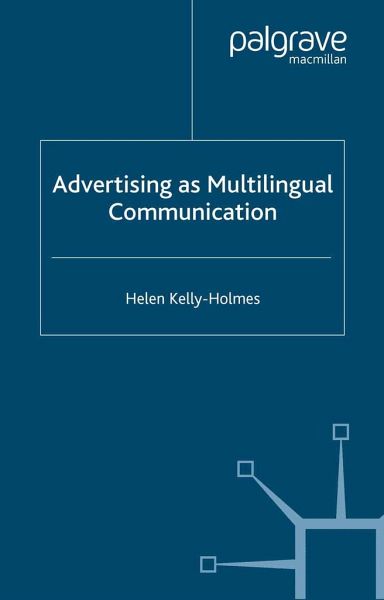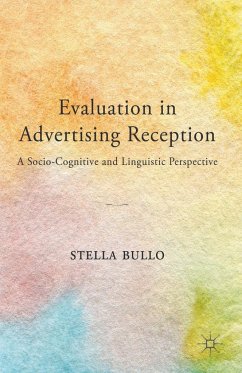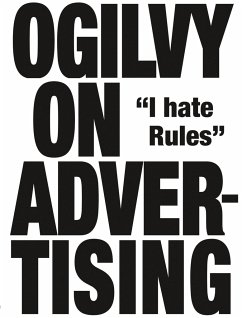
Advertising as Multilingual Communication
Versandkostenfrei!
Versandfertig in 6-10 Tagen
38,99 €
inkl. MwSt.
Weitere Ausgaben:

PAYBACK Punkte
19 °P sammeln!
Advertising has traditionally communicated messages to consumers with strong local and national identities. However, increasingly, products, producers, advertising agencies and media are becoming internationalized. In the development of strategies that appeal to a large multinational consumer base, advertising language takes on new 'multilingual' features. The author explores the role of advertising language in this new globalized environment, from a communicative theory point of view, as well as from a close linguistic analysis of some major advertising campaigns within a multicultural and mu...
Advertising has traditionally communicated messages to consumers with strong local and national identities. However, increasingly, products, producers, advertising agencies and media are becoming internationalized. In the development of strategies that appeal to a large multinational consumer base, advertising language takes on new 'multilingual' features. The author explores the role of advertising language in this new globalized environment, from a communicative theory point of view, as well as from a close linguistic analysis of some major advertising campaigns within a multicultural and multilingual marketplace.












